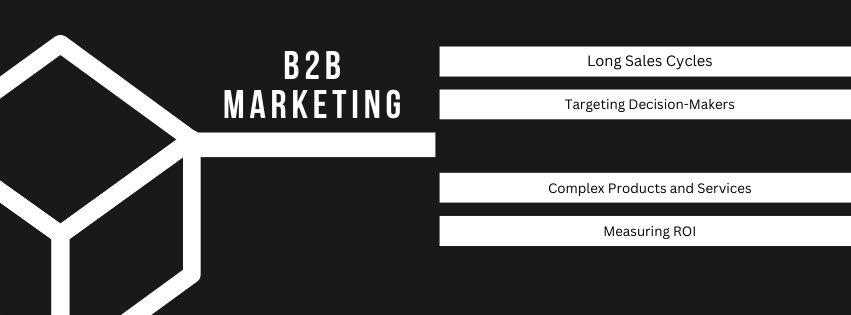Effective Content Marketing Strategies: How to Create and Distribute Valuable Content
In today’s digital landscape, content marketing has become a cornerstone of successful marketing strategies. By creating and sharing valuable content, businesses can attract, engage, and retain their target audience, ultimately driving growth and building brand loyalty. This blog will delve into the essentials of content marketing, including its benefits, key components, and effective strategies to help you develop a successful content marketing plan.

What is Content Marketing?
Content marketing is a strategic approach focused on creating and distributing valuable, relevant, and consistent content to attract and engage a clearly defined audience. The goal is to drive profitable customer action by providing content that educates, informs, or entertains your audience, rather than directly promoting your products or services.
Key Components of Content Marketing
- Content Creation: Developing high-quality, relevant content that resonates with your target audience. This includes blog posts, articles, videos, infographics, podcasts, and more.
- Content Distribution: Sharing your content through various channels, such as your website, social media, email newsletters, and third-party platforms.
- Content Promotion: Using paid and organic methods to increase the visibility and reach of your content. This includes social media advertising, search engine optimization (SEO), and influencer partnerships.
- Content Analysis: Measuring the performance of your content to understand its effectiveness and impact. This involves tracking metrics like engagement rates, traffic, conversions, and more.
Benefits of Content Marketing
- Builds Brand Awareness: Creating valuable content helps increase your brand’s visibility and recognition among your target audience.
- Establishes Authority: By providing insightful and informative content, you can position your brand as an authority and trusted source in your industry.
- Engages Your Audience: Quality content engages your audience, encouraging them to interact with your brand and share your content with others.
- Generates Leads: Content marketing can attract potential customers and nurture them through the sales funnel, ultimately converting them into leads and sales.
- Improves SEO: Well-optimized content helps improve your website’s search engine rankings, driving organic traffic and increasing your online presence.
- Builds Customer Loyalty: Providing consistent and valuable content helps build a loyal audience who trusts and values your brand.
Effective Content Marketing Strategies
1. Define Your Goals and Objectives
Before creating content, it’s essential to define your goals and objectives. Determine what you want to achieve with your content marketing efforts, whether it’s increasing brand awareness, generating leads, driving website traffic, or improving customer retention. Clear goals will guide your content strategy and help measure success.
2. Know Your Audience
Understanding your target audience is crucial for creating relevant and engaging content. Develop detailed buyer personas that represent your ideal customers, including their demographics, interests, challenges, and preferences. Use this information to tailor your content to meet their needs and address their pain points.
3. Develop a Content Strategy
A well-defined content strategy outlines how you will create, distribute, and promote your content. Key elements of a content strategy include:
- Content Themes and Topics: Identify the key themes and topics that align with your audience’s interests and needs.
- Content Formats: Determine the types of content that will best engage your audience, such as blog posts, videos, infographics, or podcasts.
- Content Calendar: Create a content calendar to plan and schedule your content production and distribution. This helps ensure consistency and organization.
- Distribution Channels: Choose the channels through which you will share your content, such as your website, social media, email, or third-party platforms.
4. Create High-Quality Content
Quality is paramount in content marketing. Focus on creating content that is informative, engaging, and valuable to your audience. Key tips for producing high-quality content include:
- Be Authentic: Share genuine insights and perspectives that reflect your brand’s voice and values.
- Provide Value: Offer solutions, insights, or entertainment that addresses your audience’s needs and interests.
- Use Visuals: Incorporate images, videos, and infographics to make your content more engaging and visually appealing.
- Ensure Accuracy: Provide accurate and well-researched information to build trust and credibility with your audience.
5. Optimize for SEO
Search engine optimization (SEO) is crucial for increasing the visibility of your content and driving organic traffic. Key SEO practices include:
- Keyword Research: Identify relevant keywords and phrases that your target audience is searching for and incorporate them into your content.
- On-Page SEO: Optimize your content’s titles, headings, meta descriptions, and URLs to improve search engine rankings.
- Internal and External Links: Use internal links to guide readers to related content on your site and external links to credible sources.
- Mobile Optimization: Ensure your content is mobile-friendly and provides a seamless experience across different devices.
6. Promote Your Content
Content promotion helps increase the reach and visibility of your content. Effective promotion strategies include:
- Social Media: Share your content on social media platforms and engage with your audience through comments and messages.
- Email Marketing: Distribute your content through email newsletters and campaigns to reach your subscribers.
- Paid Advertising: Use paid advertising methods, such as social media ads or search engine ads, to boost your content’s visibility.
- Influencer Partnerships: Collaborate with influencers or industry experts to expand your content’s reach and credibility.
7. Measure and Analyze Performance
Tracking and analyzing the performance of your content is essential for understanding its effectiveness and making improvements. Key metrics to monitor include:
- Engagement: Measure likes, shares, comments, and other forms of engagement to gauge how well your content resonates with your audience.
- Traffic: Track the number of visitors to your content and analyze their behavior on your site.
- Conversions: Monitor how well your content drives desired actions, such as lead generation or sales.
- SEO Metrics: Analyze keyword rankings, organic traffic, and other SEO-related metrics to assess the impact of your content on search engine visibility.
8. Iterate and Improve
Content marketing is an ongoing process. Use the insights gained from your performance analysis to make data-driven decisions and continuously improve your content strategy. Experiment with new content formats, topics, and distribution methods to keep your content fresh and engaging.
Tips for Success in Content Marketing
- Be Consistent: Maintain a consistent posting schedule and adhere to your content calendar to keep your audience engaged.
- Focus on Quality: Prioritize quality over quantity in your content creation efforts. High-quality content is more likely to drive engagement and conversions.
- Stay Updated: Keep up with industry trends and changes in consumer behavior to ensure your content remains relevant and effective.
- Encourage User-Generated Content: Engage your audience by encouraging them to create and share content related to your brand.
- Leverage Content Repurposing: Repurpose existing content into different formats or update it to extend its lifespan and reach.
Conclusion
Content marketing is a powerful tool for attracting, engaging, and retaining your target audience. By creating valuable and relevant content, you can build brand awareness, establish authority, and drive customer loyalty. Implementing effective strategies and continuously optimizing your approach will help you achieve success in your content marketing efforts and grow your business.
This blog provides a comprehensive overview of content marketing, making it a valuable resource for businesses and marketers looking to leverage content to achieve their marketing goals.




2 thoughts on “The Power of Content Marketing: Strategies to Attract and Engage Your Audience”